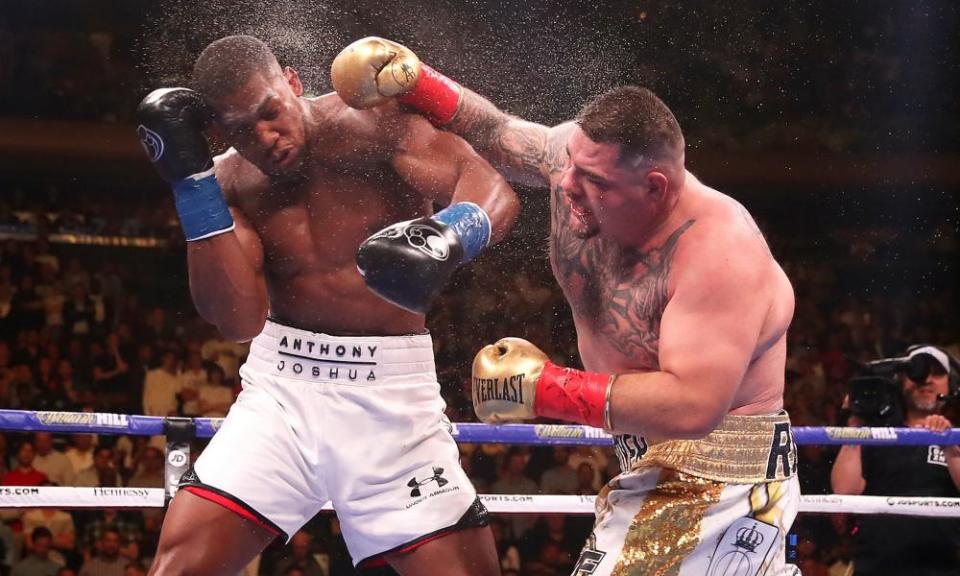Anthony Joshua’s trainer McCracken backed over concussion comments

Anthony Joshua’s trainer Rob McCracken will not face any disciplinary action for saying he allowed his heavyweight to keep fighting while concussed, after receiving the full backing of the British Boxing Board of Control.
The brain charity Headway has been deeply critical of McCracken’s admission that he “knew” Joshua was concussed against Andy Ruiz Jr yet kept “trying to get him through a few more rounds” – and accused him of failing in his duty of care for the former WBA, IBF and WBO world champion.
Related: Amnesty says Anthony Joshua is being duped over Saudi Arabia fight
McCracken has since clarified his remarks, saying he was “not a doctor and it may be that concussed is not the right term to have used”, and strenuously denied any wrongdoing.
“In professional boxing, fighters inevitably take punches and have difficult rounds and when they come back to the corner it is your job as a coach to make a quick assessment of the situation,” he said. “There is no formal concussional protocol where the doctor steps in to assess the boxer so you have to use your experience as a coach and your knowledge of the person to make a decision on whether you think they can recover.”
And the trainer has now been fully supported by Robert Smith, general secretary of the British Boxing Board of Control, who told the Guardian he saw nothing wrong with McCracken’s original comments.
“I don’t think Robert said anything out of sync,” Smith said. “Boxing is a combat sport. People do get hit and concussions do occur. Obviously the referee and trainers are there to look after the boxers to the best of their ability, and I can understand Robert’s comments completely. He is very experienced. I have no issues with Robert at all. He is very qualified. He is one of the best in the world.”
Smith also rejected claims by Headway that McCracken had failed in his duty of care and could have seriously damaged Joshua’s health by allowing him to carry on. “I trust Robert impeccably,” he said. “If any of his boxers were in that serious trouble he would have pulled them out, I am sure.”
When asked what advice he would give to a trainer who felt his fighter had a concussion, Smith replied: “You’ve got to see what you have got when a fighter sits down. Concussion in a boxing contest must occur on a regular basis – you are getting punched so there will be concussions – and people do recover. Joshua got knocked down by Wladimir Klitschko and recovered to win. People condemn us, but we take the safety of our boxers very seriously. Our medicals are very stringent. And we have a lot of things in place as regard to any boxer for any issue. Our job is to make it as safe as we possibly can but we can’t be 100% safe.”
Smith also defended boxing from criticism that it lacked the formal concussion protocols that are now commonplace in other collision sports. “In this country, if a doctor has any concerns as regards to the physical condition of a boxer he has the right to go up to the ring and tell the referee stop the fight,” he said.

 Yahoo Sport
Yahoo Sport 





































